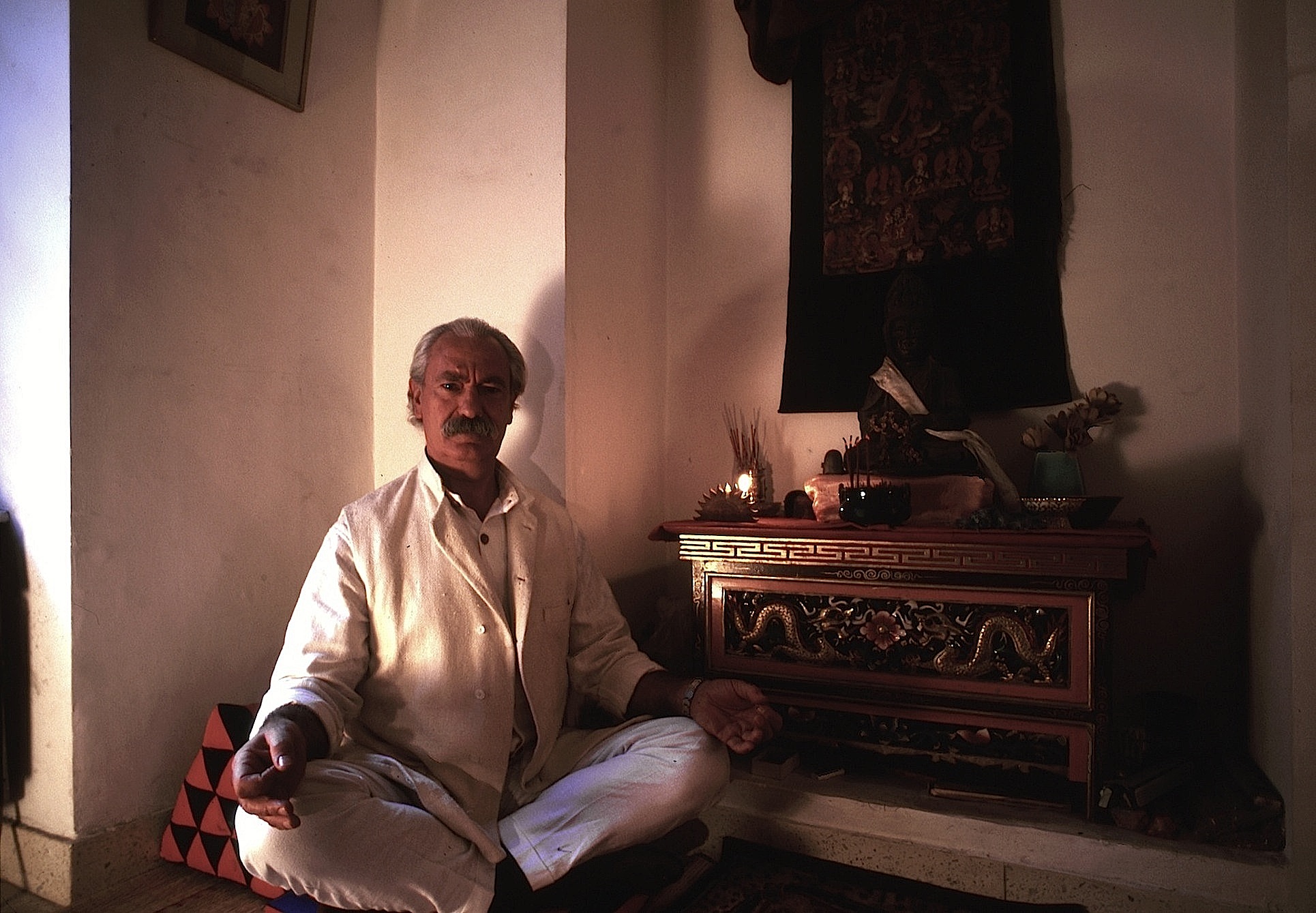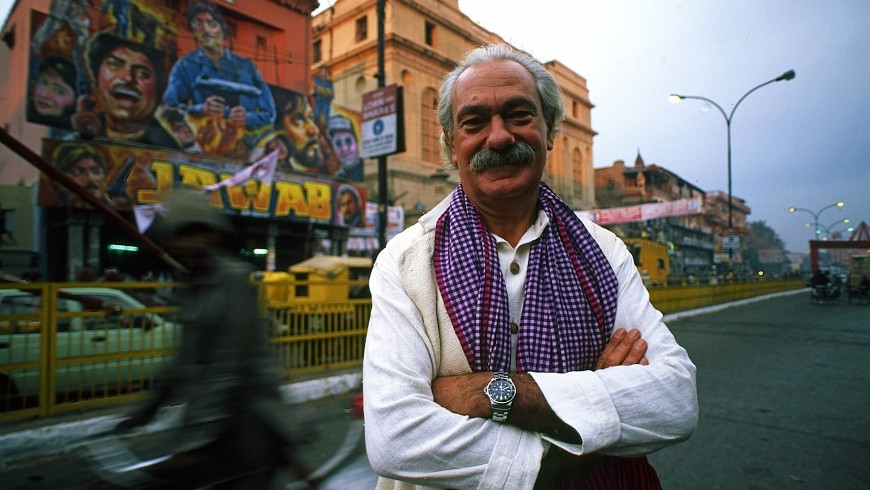
Ten years ago Tiziano Terzani was dying of cancer, a great journalist and writer of great (deserved) success. I had interviewed and photographed him, in Delhi, in February 1995 and G(iuseppe). Alberto Orefice had agreed to publish those notes in his weekly magazine E’ SOPRATTUTTO, in number 29, in the newsstands on October 31st, 1997. Meanwhile, also Alberto has left us, inventor and editor of the widespread magazines such as GENTE VIAGGI and IL PIACERE, a real gentleman whose smile never lacked. In memory of these FRIENDS I have decided to share with BARNUM readers the article in which Tiziano proved himself, a long sighted fortune-teller!
Massimo Pacifico
To become popular writers just have to work thirty years as a correspondent in Asia finding fault with governments that are not always willing to put up with such advertising. One just needs to escape stray bullets and regular firing squads. One just needs to share – pursuing them – scary natural tragedies. One just needs to change home and language every few years. One just needs to confront engagement with different religions and beliefs. One just needs to penetrate the recesses of black and white magic. One just needs to describe everything in articles and books in simple and exciting language. Tiziano Terzani knows this well, he’s probably the best known of the Italian journalists abroad, who has lived from 1971 respectively in Singapore, Hong Kong, Beijing, Tokyo and Bangkok, and now lives in Delhi.
Tiziano wrote Pelle di leopardo in ’73, telling, in his own way, about the war in Vietnam, and in ’75 he attended the arrival of the communist troops in Saigon. He witnessed the horrors of Pol Pot and described them in Holocaust in Kambodscha; he was expelled from China, as told in La porta proibita and he narrated, almost live, the collapse of the Soviet empire in Buonanotte, signor Lenin. He met with the presidents and dictators, kings and demagogues, diplomats in uniform and managers of smelly taverns, first and third-rate actors and prostitutes of the same rank; pilots of navigating carcasses and industrial men of drugs, magicians, fortune tellers and high priests.
He saw deserts and lush islands, attended the imperial palaces and filthy hovels, exclusive neighborhoods and daunting suburbs and everything has consistently been reported, never forgetting the florentine irony, for his German readers: he is a correspondent of Der Spiegel; Italian: Il Corriere della Sera publishes his reports, and Anglo-Americans: his books have been bestsellers also in English.
But the greatest success Tiziano had with the last of his books Un indovino mi disse, now in its 6th edition and since last July distributed in more than one hundred thousand copies, even in a super-economical edition. It’s a detailed account of a year living without setting foot on an airplane, following the ominous prediction of a Chinese fortune teller. The experience derived from the decision to follow the response of a visionary who foresaw his death in case of transgression, proved to be the occasion to make a journey in time and geography with means now unusual for the modern traveller. Not only that, the period ‘on the ground’ was useful for Terzani also to reflect on the contemporary role of the journalist and the sad cultural assimilation of our era.
We talked for a long time and repeatedly, huddled up on the sofas of his home in Delhi; on the back seat of his cream coloured Ambassador, and less comfortably, along the streets of Old Delhi, sharing seat of a rickshaw driven by a wildly intrepid pedaler for the agreed rate.
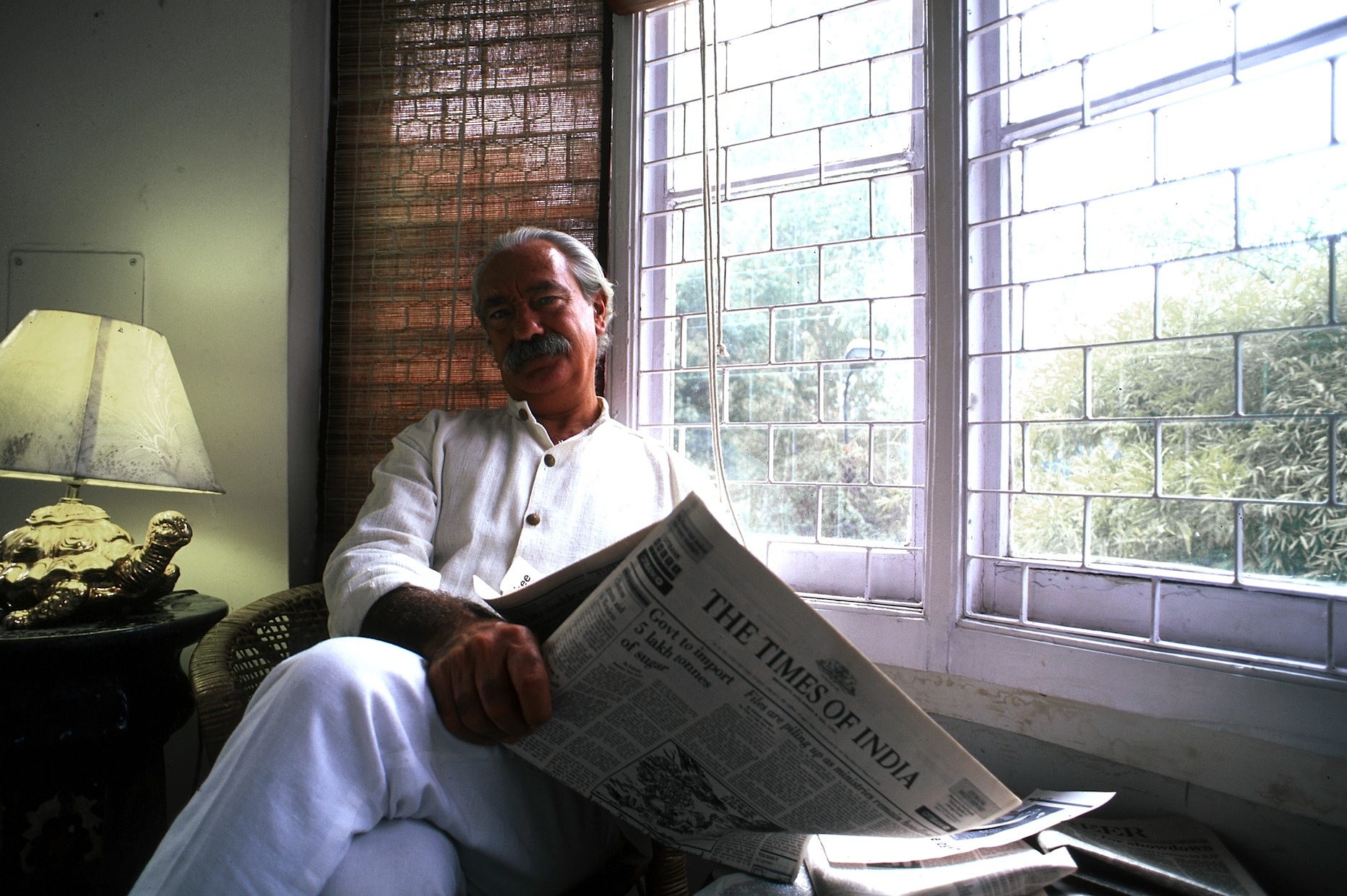 What did the experience of a year not living dangerously mean to you? One year with your feet on the ground?
What did the experience of a year not living dangerously mean to you? One year with your feet on the ground?
Well, I lived for twelve months as if I were a journalist in the ‘800, moving by train and by ship; it was an extraordinary year, because I changed my approach to the world. Never in an airport and three hours later finding myself in a completely different part of the globe. Everything became much more complicated and much nicer. Because I had always had to conquer things. I had, for example, to pay to get to the top of a mountain. Traveling the old way I rediscovered the value of the mountains that re-appeared to me as obstacles to be overcome and not as ‘things’ that one looks at through a porthole, down below. The same relates to rivers and borders.
You mentioned another journey, a more interior one…
Yes, I’ve had much more time to think about a kind of biography, that of a man in crisis with journalism, with the injustice of the world, with the lack of morality. And to live a journey in the soul of a man who tries to add a bit of poetry to the routine of his life that has become quite boring…
Well, it would not seem that you have a boring life!
But yes, you know, eventually the adventures repeat themselves. They are mostly made of a succession of taxis, airports, airplanes, hotels, air conditioned taxis, hotels, air conditioning… The year told in my book got me back to hanging out with people who one does not see anymore. Those traveling with cardboard boxes tied up with string, loads of children, in the old ferries or very special trains. I did, for example, the trip from Saigon to Hanoi on the train which is called the Reunification Express, from whose windows you see a Vietnam that is no longer to be seen because people move on the plane now, even there…
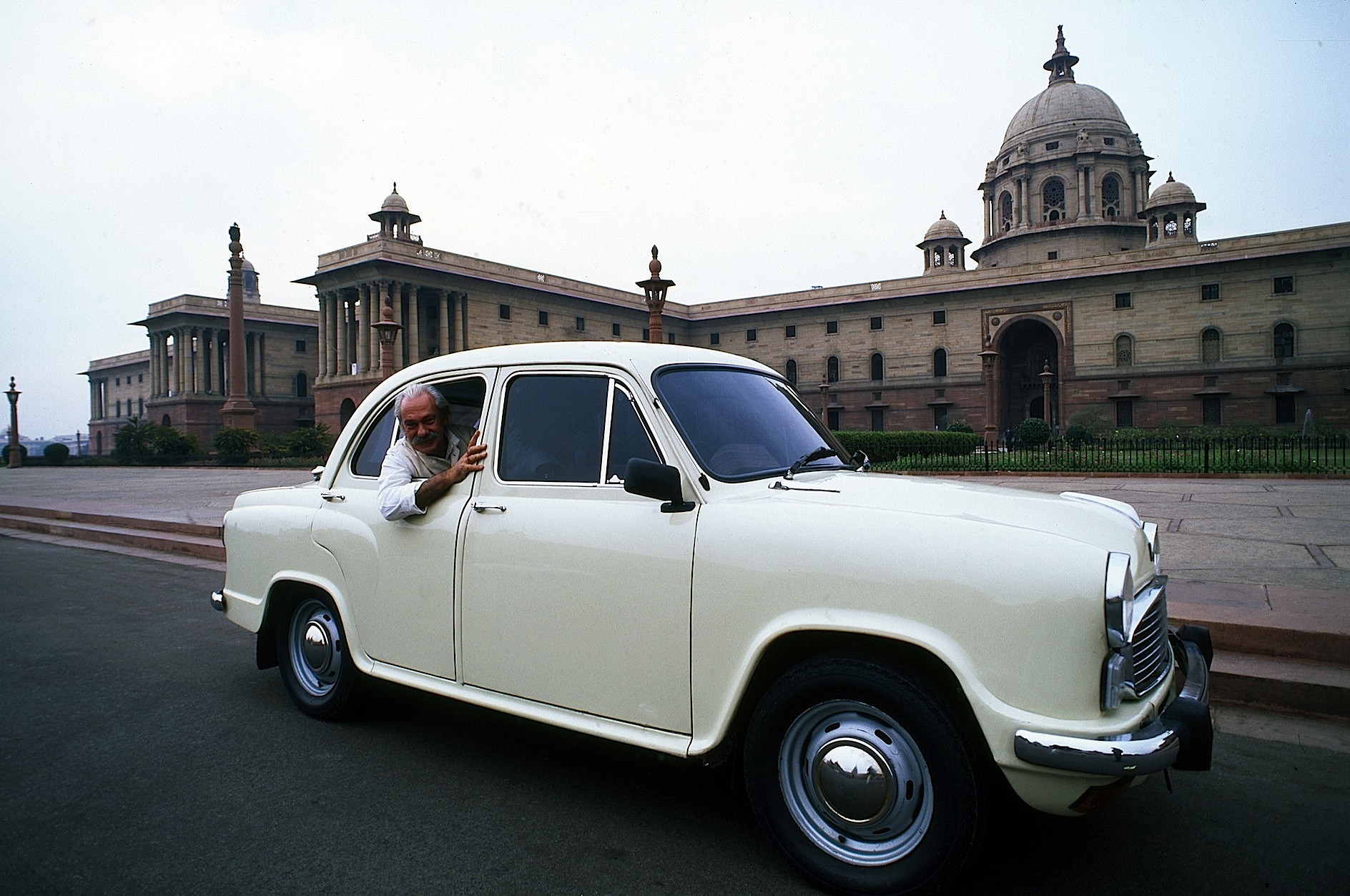 Yes, just like journalists…
Yes, just like journalists…
That are almost forced to do a job that has become increasingly commonplace, more electronic, more superficial as the television claims. Luckily I discovered this occult channel, this last refuge of the charm of old Asia. Of places where one still marries, give names to their children, builds houses, where one decides the day to go on a trip or do a coup d’état based on criteria that have nothing to do with the logic but rather with astrology, with the measurement of the ratio between the water and the wind and that of the time of your birth with the stars. Or where you still have the time to meditate. I ended up in a Buddhist retreat in Thailand where the teacher was a former CIA agent. Things that, in Italy, have no chance of happening.
But now, do you feel so foreign?
Not really. I am very Florentine. Yet when I was a child my mother took me for rides through the hills and I saw those beautiful villas that I envied so much. I wondered: “But who lives here?” And it was always an English author, a German painter, an old American lady. So from an early age I formed the idea that to really enjoy Florence one had to be a foreigner and as a result I have invested my life in becoming a foreigner so that I can one day return to Florence and enjoy it.
You had the same foreigner privilege situation in the cities that you have been a guest in…
Yes, my true profession is that of the escapee. I have always run away from all the places in search of something else, and the truth is that I ran into Asia in search of that Asia that then disappeared through my hands. In the one where thirty years ago I arrived there was still ideology and the myth resisted, the other one, everything that I was not, that I did not know about. Now all that Asia is conformed. It has digested with the inferiority complex imposed by the West, the model of modernity which is believed to be the one of the West. So then it all becomes the same thing…
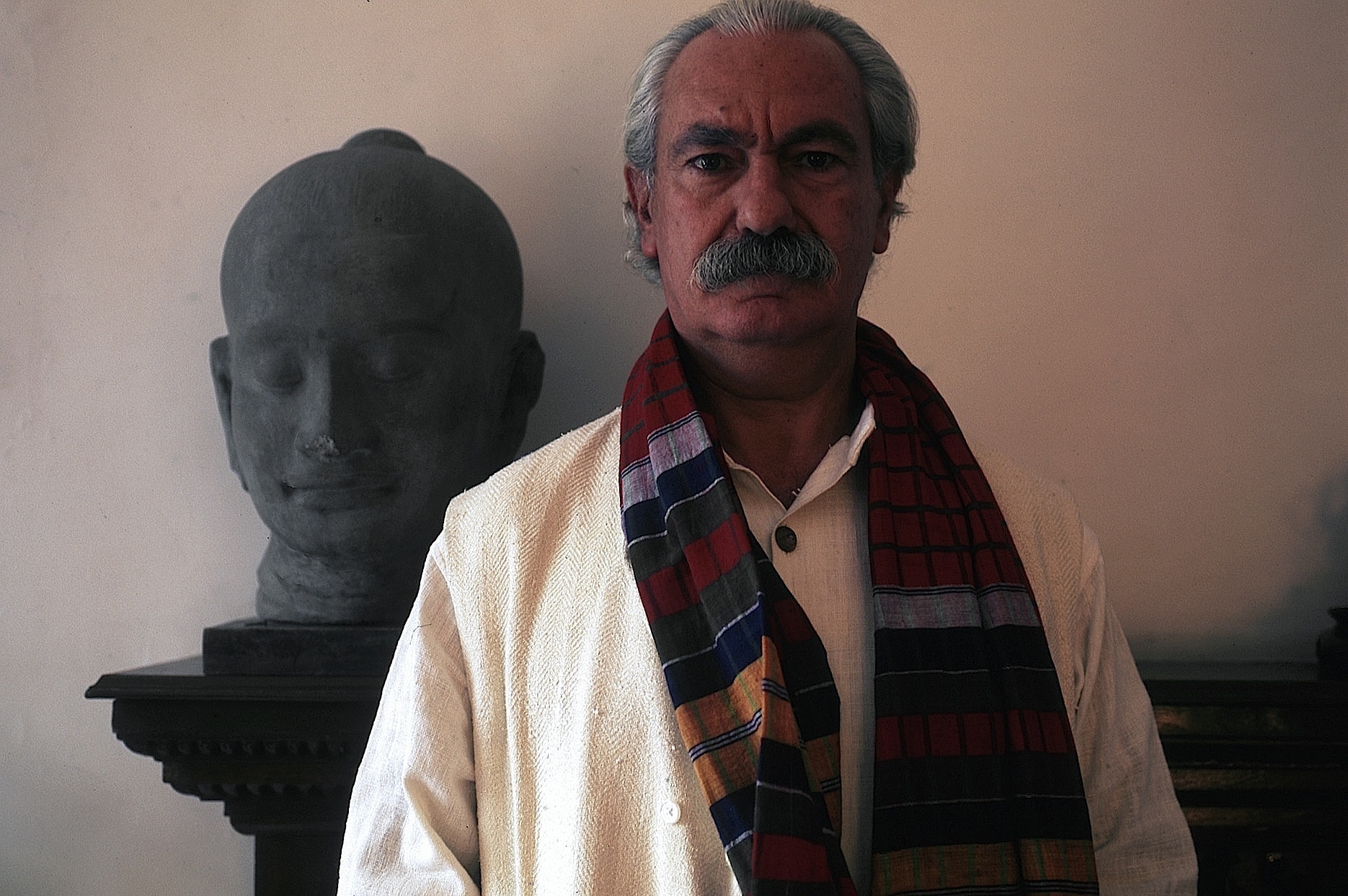
So that’s what prompted you towards India, the country that is the less conformed of all major Asian countries?
Yes I came here to seek a last resort in which maybe someone resists with a shield of old spirituality this wave of materialism that is wiping out the rest of the world.
You think it’s just a fact of spirituality and not, instead, a political fact? The attempt as always pursued by India to present themselves as a spokesman or leader of the non-aligned countries?
Politics no longer exist. It is pure administration. There are great people who think. Even in this country, the political will is to become like everyone else. The problem is that there is still a resistance on the village level, of a country in which 85 percent of the population does not participate at all in the liberalization. Those who do not drink Coca Cola, which was reintroduced into India with a great fanfare. When I arrived billboards were all over the place, with slogans saying, “We are happy to be back”. “For whom?” I wonder. In the villages there is no drinking water. The water is putrid and Coca Cola is brought in. Luckily here there’s still so many people that pass you by and that still have that shine of light in their eyes, with madness, who seems to know, says Angela, my wife, something we do not know. If I could return to Europe when I’m old knowing a minimum of those things that they know and we do not, and that makes them so serene, I’d be really happy.
Maybe it is this that makes oriental philosophy so fashionable with us and that has caused so many proselytes to the practice of Buddhism?
It may well be. Of course we need to rediscover the little paths of occult knowledge after taking the highway of science that made us forget, for example, the practice and exercise of the mind, the greatest tool we have and that we never exercise. We do gymnastics for us not to grow a belly, but we do not exercise the mind. Even the mystics of Christianity did nothing but this. One needs to stop and rethink our past to re-evaluate some things that we have thrown overboard relying entirely on science and new tools of knowledge, leaving mankind impoverished.
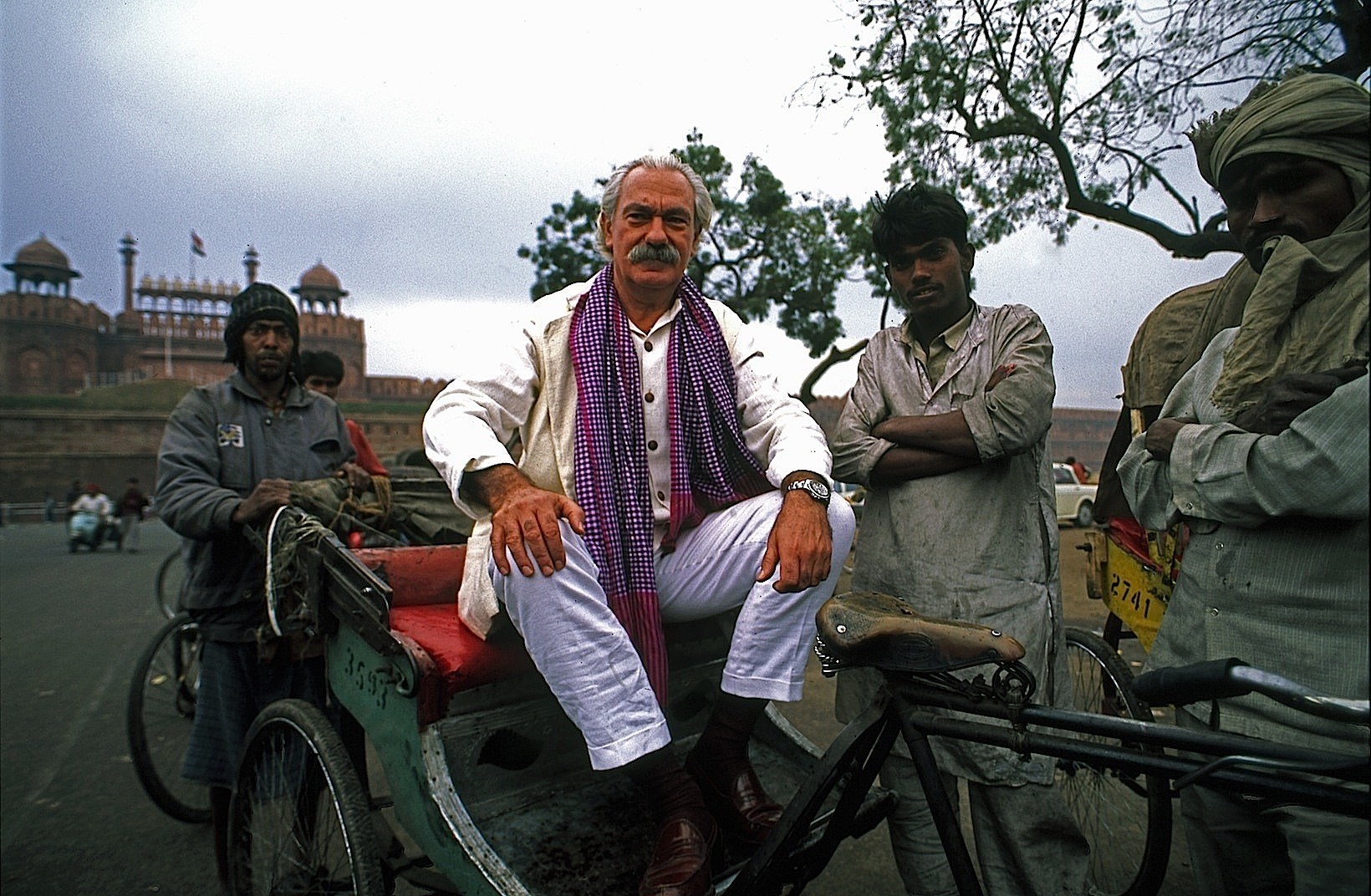 But there must be a charm in all this, because the Asian countries of great culture do not seem to show hesitation in abandoning the results of thousands of years of civilization to copy the West…
But there must be a charm in all this, because the Asian countries of great culture do not seem to show hesitation in abandoning the results of thousands of years of civilization to copy the West…
This is the problem of underdevelopment Asia. Chinese and Indians with their culture and their tradition, should have the courage, the strength of conscience, to seek solutions to their problems. I don’t understand why they want to give European solutions to their problems in Asia. When I see a Chinese man wearing a tie it makes me feel sick. When I see a population who invented a whole way of life, of making love, of reading, of cooking, of having fun, suddenly blow away everything to copy us makes me feel bad. It makes me think a lot of a country like China that has renounced even to the way of living in those beautiful houses with courtyards, which are now being destroyed in order to build public housing like those in Abbiategrasso. Is this China? No. It’s Burundi, a country with no history! I’m not saying that they should remain poor, but find a model suitable to their tradition. They are certainly not inferior to us.
In the large Asian cities where you have lived you’ll certainly have felt better in some and worse in others. From the book of Giorni Giapponesi your wife Angela makes us believe that the experience in Tokyo was not too positive…
What destroyed us in Japan was having to adapt to the Japanese society that is like a large cage, a huge prison where everyone is a poor man in a straitjacket which is that of the small spaces and where the roles are so defined so that everyone has to play his and no one else’s. This weighed on us. We always had the role of foreigners. Just think that we were in this country for five years. When we arrived we had a friend, met years before, during the war in Vietnam, and when we left we still only had that one friend, despite having had contact with hundreds of people. You can live well in Japan if you do not have the pretension to penetrate it. Many foreigners who say they love the country, but in truth they only love the life that this country allows them to have.
And Bangkok?
Bangkok, on the other hand is a very nice city. It is not a coincidence that we decided to live there after Japan. We needed to rest in the sun. In that city, everything is a massage: from the climate to uncomplicated human relationships. Of course, there also, it is now very prostituted to tourism, from a large percentage of women, to the beaches. Yet there are still so many islands to discover that are not yet spoilt as Ko Samui and Pukhet. For example Ko Cian, towards the Cambodian border or Thau Ko, to the south, close to Malaysia.
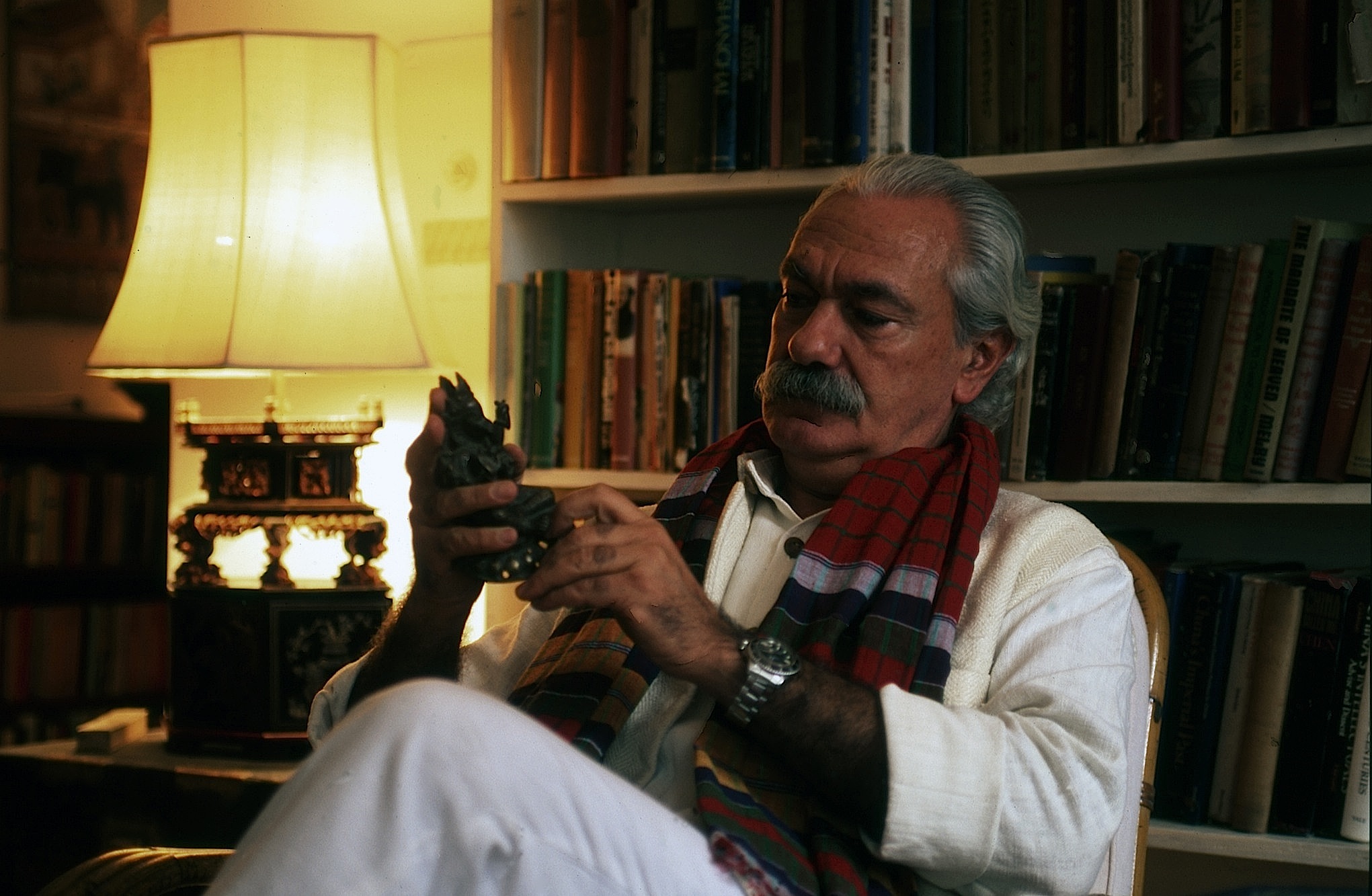 How do you feel in Delhi?
How do you feel in Delhi?
Here, all of a sudden you find yourself living like at least a hundred years ago. We must fight with many small everyday problems, but one just has to change their mentality. If you put convince yourself that everything has to work, that one should receive the fax messages, that one has to have running water, then you go mad…
But then how does a journalist who has time and deadlines to meet cope?
Ah, no, fortunately the newspapers consider you a bit lost in India, so if they can’t find you, if the phone does not answer, sooner or later they get used to it. Just how we did ourselves. Every day there is something that does not work. First, we would try and cope and run for cover… “Call the workers, look for the driver”… Now we take it as it is. Because we need to understand India’s timing. Then there is the lack of what we consider privacy that here is practically nonexistent. There are people who will swoop into the house at eight in the evening. “We were just passing by!” and since it is claimed that the phone does not work, no one bothers to call and just arrives, sit down and talk for two hours. But this is nice because here you have the time for human relationships. One thing that we have lost.
And what do you expect from this new experience?
Another disappointment of course. When I’ll leave India, the India that we see today so mysterious and unique and different, will no longer be.
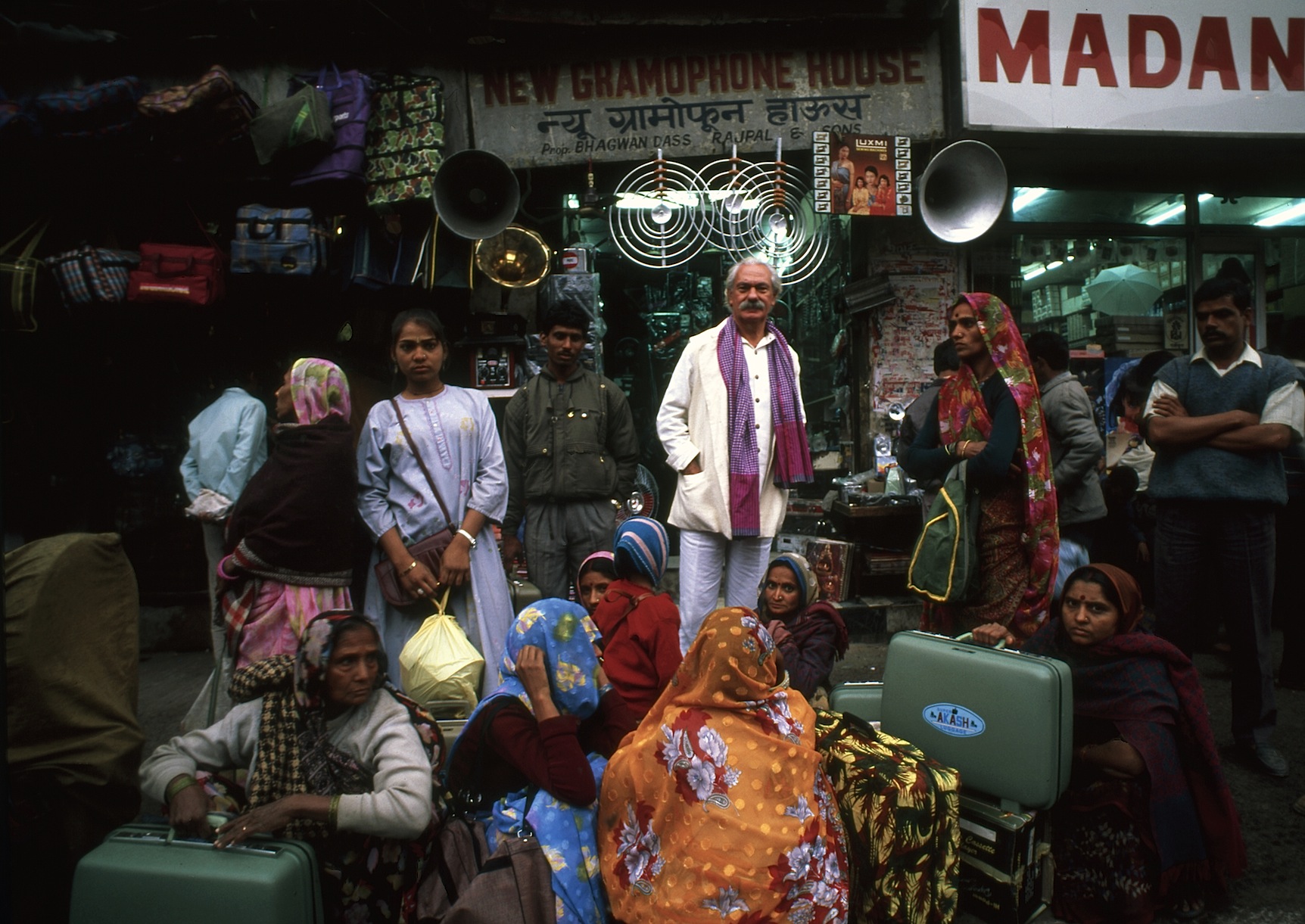 So if you’ve had so many disappointments you must be full of regrets…
So if you’ve had so many disappointments you must be full of regrets…
No. I’d do it all over again. I feel highly enriched. I am not speaking of money, but of course experiences. I’ve seen some things that certainly no longer exist today. Deleted by the tourism industry, which, if I could, I would abolish. Having a passport should be a privilege. I always think how nice it had to be in the times when one travelled with a business card and with someone’s recommendation. Today, however, everyone claims to know everything. There is such a poisoning of information that results in everyone having the impression of having understood everything and, in truth, this feeds a terrible ignorance. So, journalism has become a profession in which I feel like a white rhino, an endangered species: they should put me in the red book. Once upon a time it made sense: you went where others didn’t go. Today, wherever you go, everyone goes. I wonder if they do it with the same com/ passion that was part of our job, which was a way of life, the only one that seemed possible to me. I tried to be a lawyer in Florence and I was bored to death. I tried to be a director of Olivetti and I was ashamed to walk around with a tie, saying “I’m Dr Terzani.” I invented the only profession that I was capable of sustaining. And maybe it still has a sense, despite the television that transmits images in color of events to which I will reach only several hours later, when I can say something that the camera does not capture. In Kobe, after the earthquake, I did a piece explaining how the Japanese, with their highly disciplined attitude prevented me from being moved by their misery. Readers have sent me faxes to thank me for helping them to understand. Things like this give me the strength to continue.
I agree with your position on the great evils caused by mass tourism, but I think ours is a too elitist attitude …
Sure. I’m not ashamed to say it. I am paid to do what other people pay for. A huge privilege. That sometimes costs, like when I was just about to be killed. However, it is clear that we are an elite. An elite, in addition, that, in a democratic way, is disappearing because democracy, against whom now I write crazy pieces from the mountain tops, flattens everything. Democracy made sense when in a square in Athens there was a vote for whether to go to war against Sparta or not, and whoever voted to go to war then they went. To risk one’s life. Today one votes a symbol or whatever some underdog standing on a crate of oranges says he wants to do in the world, without you even understanding why the world is so complicated. And the most terrible thing is that today just because one has to be voted, only the mediocre are voted for. Only mediocrity emerges. If one had some great ideas, which must be such to be unpopular, one would never be elected. So, democracy is the praise of mediocrity.
Who would you let travel then?
Those who can’t do anything else. Those for whom a journey is a mission…
Well, you know the travel industry is also a source of employment for many…
It’s one of the most disastrous, because it not only destroys culture, but it destroys countries. The indifference of the video has scraped away the magic in things. But, in truth, think about it, did not even our buildings and our churches lose some of their mystique having been scratched by billions of people?
